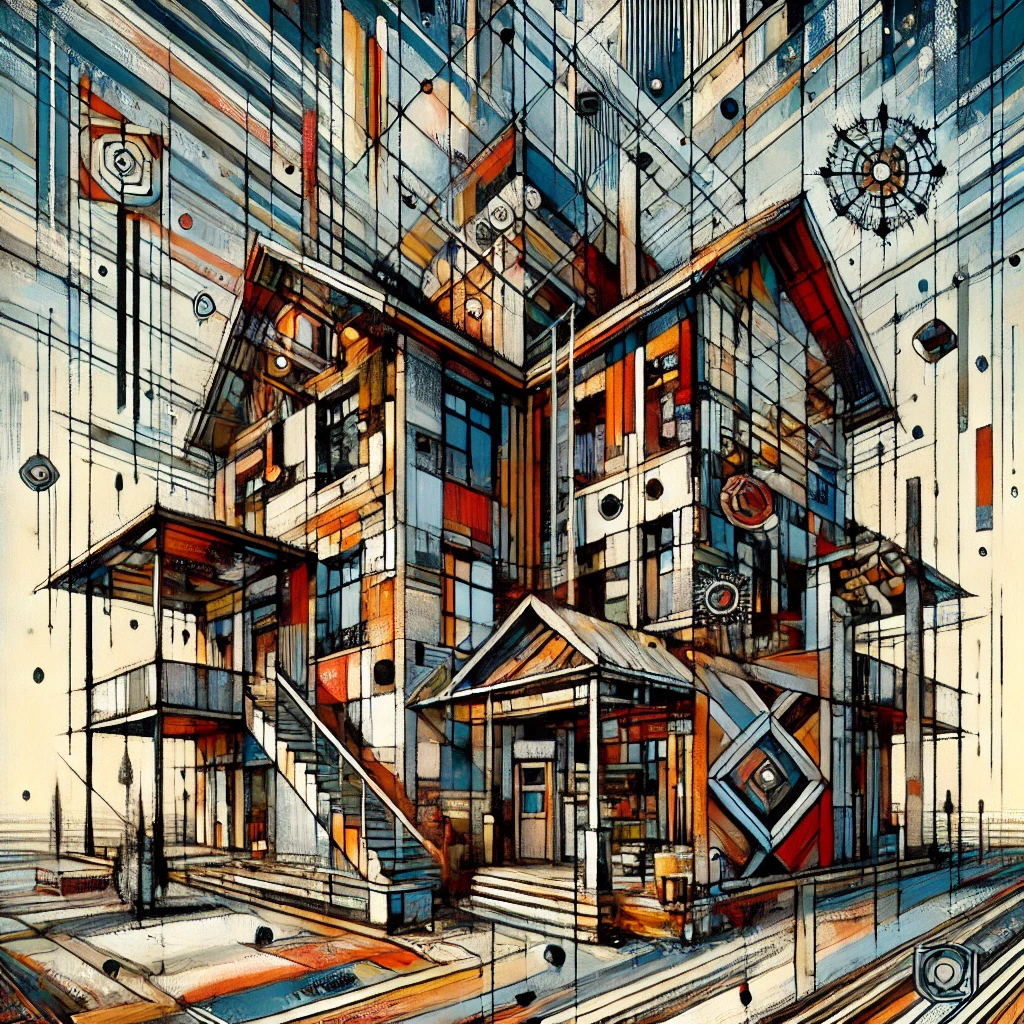Post-structuralism

Place of Origin: Europe (primarily France)
Century of Origin: Mid-20th Century CE
Associated Philosophers:
Overview of Post-structuralism
Post-structuralism is a philosophical movement that challenges the idea that there are fixed meanings or truths in the world. It argues that meaning is not stable and that the way we understand things is shaped by language, culture, and social context. Post-structuralists believe that concepts like truth, identity, and meaning are not fixed but are constantly changing depending on how they are used and interpreted. This philosophy encourages people to question traditional ideas about language and knowledge, exploring how power and culture influence the way we understand the world.
In Post-structuralism, metaphysics focuses on the idea that reality and meaning are not fixed or objective, but are shaped by social and cultural factors. Post-structuralists argue that what we think of as 'reality' is actually constructed through language and influenced by the society we live in. They believe that meaning is not something that exists independently, but is created through the relationships between words, symbols, and ideas. This view challenges traditional metaphysical ideas about a stable reality, emphasizing that meaning is always in flux.
Post-structuralism views knowledge as something that is not fixed or absolute. It argues that knowledge is shaped by language, culture, and power relations. Post-structuralists believe that what we consider to be 'true' or 'known' is often influenced by those in power and that these truths can change over time. This philosophy encourages people to be skeptical of traditional sources of knowledge, questioning how knowledge is constructed and who benefits from it.
Ethics in Post-structuralism focus on the idea that there are no universal moral principles that apply to everyone in all situations. Post-structuralists argue that moral values are shaped by social and cultural contexts, and that what is considered 'right' or 'wrong' can vary depending on these factors. This philosophy encourages flexibility and openness to different moral perspectives, rather than relying on fixed, rigid ethical rules. Post-structuralism emphasizes the importance of understanding how power and culture influence our ethical beliefs.
Post-structuralism challenges traditional logic, arguing that systems of thought that rely on clear-cut distinctions between ideas can limit our understanding of the world. Post-structuralists believe that meaning is often ambiguous and that contradictions are a natural part of language and knowledge. This philosophy encourages people to embrace complexity and to recognize that the world is not always neatly divided into categories. Post-structuralism promotes thinking that is open to multiple interpretations and is skeptical of binary oppositions, such as 'true' and 'false' or 'right' and 'wrong.'
In Post-structuralism, aesthetics are focused on questioning traditional ideas about art and beauty. Post-structuralist thinkers argue that art does not have a single, fixed meaning and that the way we interpret art is influenced by our culture and social background. They believe that art can have many different meanings, depending on who is viewing it and in what context. Post-structuralism values creativity that challenges norms and encourages people to think critically about how meaning is constructed in art, rather than accepting established ideas about what is 'beautiful' or 'valuable.'
The methodology of Post-structuralism involves questioning established ideas and exploring how language and power shape our understanding of the world. Post-structuralists use techniques like deconstruction to analyze texts and ideas, showing how they are shaped by cultural and historical influences. This philosophy encourages people to look beyond surface meanings and to uncover the hidden assumptions and biases that influence how knowledge is created. Post-structuralism values critical thinking and flexibility in exploring how meaning and knowledge are constructed.
Post-structuralism views humans as beings whose identities and experiences are shaped by language and culture. It rejects the idea that people have a fixed, unchanging identity, arguing instead that identity is fluid and influenced by social and cultural forces. Post-structuralists believe that our sense of self is shaped by the language we use and the society we live in, and that this identity can change over time. This philosophy emphasizes the importance of understanding how power and culture shape our identities and the ways we experience the world.
The political philosophy of Post-structuralism challenges traditional ideas about power and authority. Post-structuralists argue that power is not something that is held by a single group or institution, but is spread throughout society and influences how we think and act. They believe that power is often hidden in language, laws, and cultural norms, shaping people's beliefs and behaviors without them even realizing it. Post-structuralists encourage people to question these power structures, recognizing that political systems are often designed to benefit certain groups while marginalizing others.
Post-structuralism developed in the mid-20th century as a response to structuralism, which argued that human culture and language could be understood through fixed structures. Thinkers like Jacques Derrida, Michel Foucault, and Roland Barthes played key roles in shaping Post-structuralism by arguing that these structures are not as stable or universal as they seem. Post-structuralism challenges the idea that there is a single, objective truth, instead exploring how meaning and knowledge are shaped by social and cultural forces. This philosophy has influenced a wide range of fields, including literature, politics, and cultural studies.
Key themes in Post-structuralism include the rejection of fixed meanings, the exploration of how language shapes our understanding of the world, and the belief that power is everywhere in society. Post-structuralists argue that meaning is not stable and that what we consider to be 'truth' is influenced by cultural and social factors. They also explore how knowledge and power are connected, showing that those in power often control what is considered true or normal. Post-structuralism encourages people to question established ideas and to be open to multiple interpretations of reality.
Jacques Derrida is one of the most influential figures in Post-structuralism, known for his concept of deconstruction, which involves breaking down texts to show how their meanings are shaped by cultural and historical influences. Michel Foucault is another key figure, known for his work on how power operates in society and how it shapes knowledge and institutions like prisons, schools, and hospitals. Other important thinkers include Roland Barthes, who explored how language and culture create meaning, and Gilles Deleuze, who focused on the fluidity of identity and the rejection of fixed categories.





